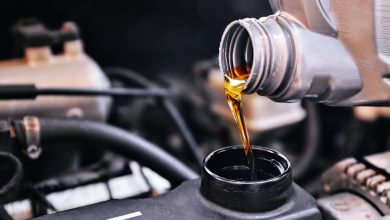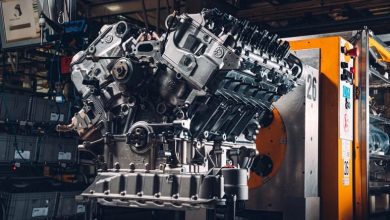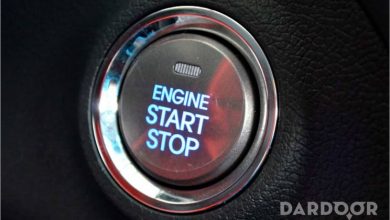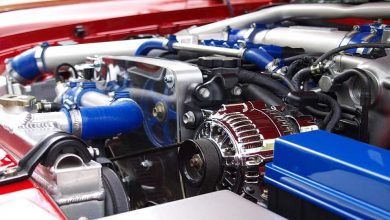Does fuel injector cleaner work?
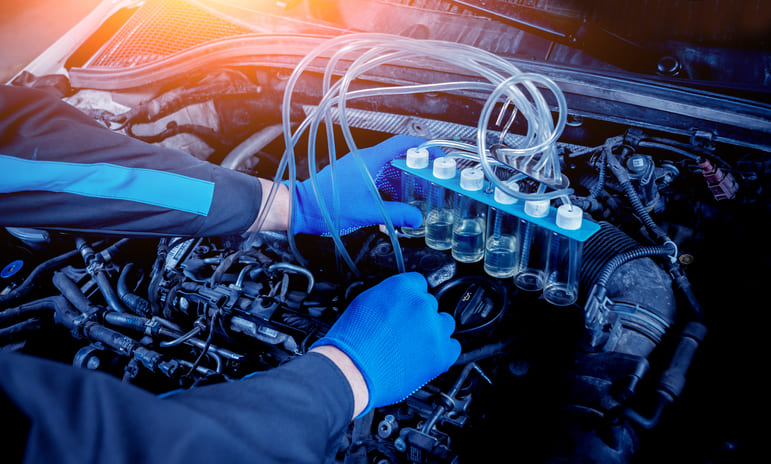
DEPOSITS OF FUEL RESIDUE ARE A BIG PROBLEM FOR FUEL INJECTORS AND THESE CLEANERS COULD BE THE SOLUTION
It is almost impossible to explore the internet or walk down the street without coming across an advertisement for a new miracle cure or product that will change our lives like nothing else. The world of automotive products is sadly no different – fresh, new ‘must haves’ that make bold claims of increasing performance or reducing fuel consumption are constantly being thrust upon us.
It can be hard to know if they are the real deal or not. One of these products that constantly has a question mark hanging over it is fuel injector cleaner. What do these fuel additives do and do fuel injector cleaners work?
WHAT IS INJECTOR CLEANER
Fuel injector cleaners are made up of various solvents and are designed to clean out fuel lines in both diesel and petrol engines. They’re incredibly simple to use and can be added directly to the fuel mix. They don’t need to be drained or removed afterwards; the solvents are combustible and will therefore be eliminated with the rest of the fuel mix and shouldn’t leave any extra deposits.
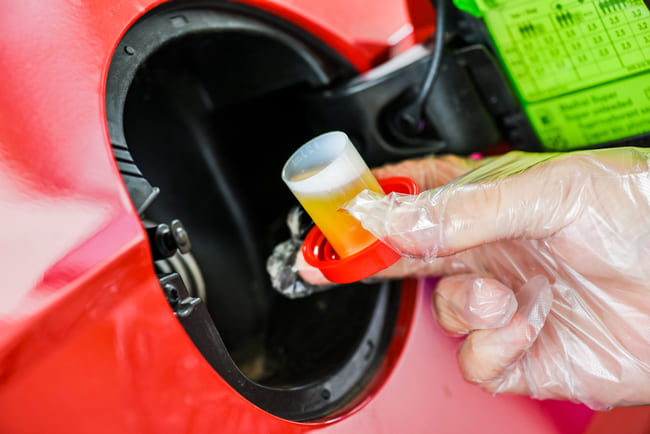
They’re designed to restore your car’s fuel injector system to its original state, cleaning away anything that might be stopping it from achieving its full functionality. Producers claim that their products can disperse moisture and dissolve gum, varnish, and other fuel residues from the entire fuel system, fuel tank, fuel lines, fuel injectors, valves, rings and pistons, essentially cleaning the entire fuel system.
The most up-market and potentially effective cleaners often contain polyisobutylene (PIB), Polyether Amine (PEA), and Polyisobutylene Amine (PIBA) as their active ingredients. PIB is a detergent that is effective at removing gum, carbon, and other deposits from the fuel system and works with PEA to break down the hardest deposits in the fuel injector system. PIBA doesn’t remove deposits and is more effective at removing moisture in the fuel system and might not be included in all injector cleaners. Some lower-end products instead contain solvents like toluene (used in making paint thinner) and acetone (contained in regular cleaning products found in the home and similar to nail polish remover), which could be less effective than those containing PIB and PEA. Some of the most popular injector cleaners are: Hot Shot’s Secret Diesel Extreme Clean and Boost, Berryman B-12 Chemtool Fuel Treatment, Chevron Techron Concentrate Plus Fuel System Cleaner, and LUCAS LUC10013 10013 Fuel Treatment.
WHY DO WE NEED INJECTOR CLEANER
The fuel injectors have the critical role of spraying just the optimal amount of fuel into your car’s engine. If the incorrect amount of fuel enters the cylinders then it will likely lead to errors in the combustion process and your engine may start to stutter and lead to inefficient fuel use. Fuel consumption is going to rise as a result as will your car’s emissions.
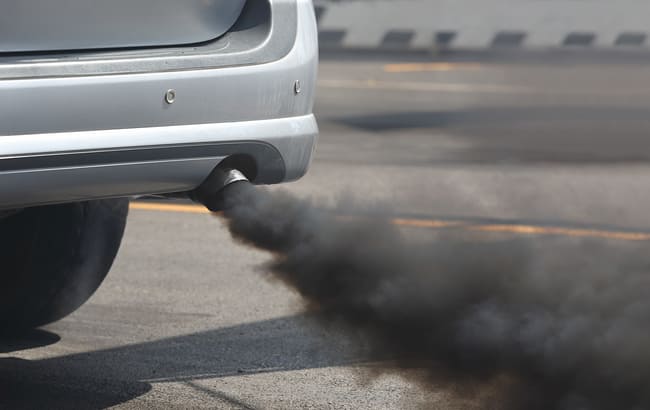
These injectors can become blocked by deposits that have built up over time. While most of this fuel residue will slowly evaporate, some fuel is always left behind in the injector nozzles and the injectors themselves. The residue in the fuel that doesn’t evaporate gets baked onto the sides of the fuel injectors or cylinders and turned into a hard varnish that is the start of a deposit forming. Those deposits end up clogging the injectors’ nozzles as well as the injectors themselves and cause the engine to no longer get the exact ratio of air and fixture which is required. This is when it can cause some serious problems.
This is often a problem for older vehicles and for drivers who frequently make short journeys, as any moisture in the oil does not have time to evaporate when.
DOES INJECTOR CLEANER WORK
The solvents contained in injector cleaners should help to eliminate all of these deposits and have a hugely positive impact on the fuel in the injection system. One of the biggest benefits of injector cleaner is that it helps drivers achieve an optimal fuel supply to the engine. When the engine gets too much or too little fuel due to clogged fuel injectors then the engine starts running ineffectively. Using an injector cleaner stops that from happening.
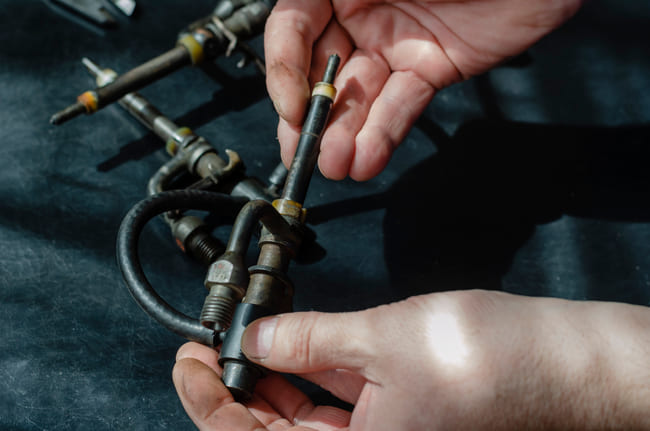
Along with this improved fuel supply, the car will also produce fewer emissions when the injectors are cleaned. Carbon deposits and other impurities in the fuel injector system can impact the optimal mixture of fuel and oxygen, leading to more harmful emissions. Reducing your emissions could also help older cars, which are more likely to be affected by fuel injector problems, pass their MOT or service check.
Similarly, one of the additional benefits linked to this is reduced fuel consumption. As fuel injector cleaner removes the deposits in the fuel system, the fuel consumption level in your diesel engine may return to its optimal state which is going to make things a lot cheaper for you and means your car’s mileage will likely increase.
Some car owners have reported increased power after using their injector cleaner. They have reported that they recovered up to 40% of the horsepower of their engine back by applying top-of-the-range diesel fuel injector cleaner. Blockage of the fuel injector system reduces the power and acceleration of your car due to a suboptimal mixture of fuel and oxygen in the fuel system. If your truck or car is old, you must consider using a good fuel injector cleaner to clear deposits from the injector system. You may be surprised that you may recover lost power and acceleration of your car.
As stated above, the top-level injector cleaners will include PIBA and will aid with the removal of water from the fuel system. This can make your engine perform better and also helps to prevent rust and corrosion in the engine in conjunction with other cleaning additives.
Experts have noted that incidences of engine misfiring can also be prevented by using fuel injector cleaner. The build-up of burnt and baked-on fuel can stop the pistons from operating at the right time and in sync with the valves and other moving components of the engine – if a cylinder is misfiring the others can and will continue to work as normal, but you will notice a definite slump in the way your engine works. If the fuel injectors are cleaned and free from blockage, this won’t take place and everything should run smoothly again.
There are, however, some potential problems with injector fuel cleaners. As ever, it always comes down to the quality of the product you choose. There might only be a small or even no effect if lower-end products, which don’t include the more high-end chemical solvents, are used. The burnt-on fuel is a lot tougher than average household grease and paint, so using products that are mainly composed only of acetone and toluene might not be that effective.
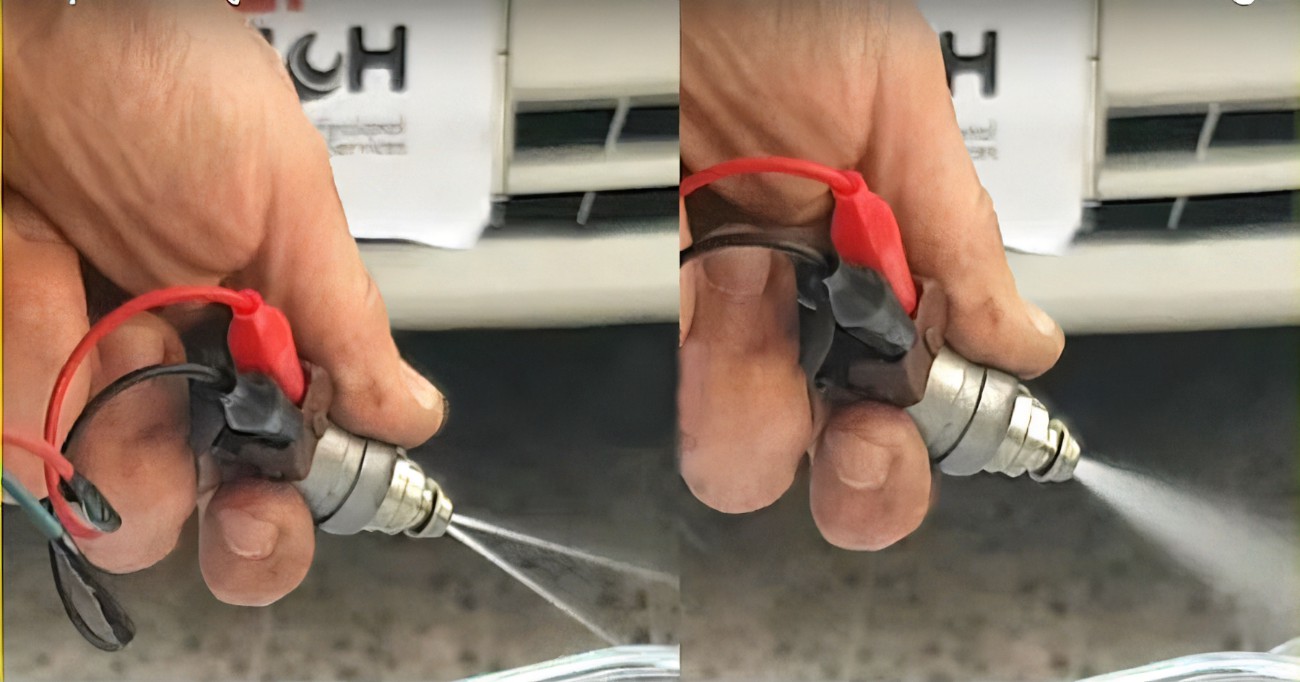
That said, it doesn’t mean products with these powerful chemicals are automatically better. Many of these are not suitable for diesel engines because of their strong nature and it could do some serious, lasting damage to your engine. The overuse of some types of diesel fuel injectors may damage your equipment’s fuel injection system. Some fuel injector cleaners can be used many times over with no adverse effects but should only be used intermittently and as advised by the manufacturer. It’s always best to check the labels of the products and consult an expert or your vehicle’s manufacturer before using any type of injector cleaner.
Similarly, older model vehicles made before the 1990s may use a carburetor instead of a fuel injection system. This means that these injector cleaners won’t be suitable and might not have the desired effect or indeed any effect at all. These vehicles may need different, more specific cleaners or a different maintenance schedule altogether. Otherwise, it could cause damage to the engine or even cause greater deposits to build up.
There are also some questions about how long the effect of fuel injector cleaners lasts. Some will only protect your fuel lines for a short time, while others will keep your fuel system clean for more than 2 years. Again, this varies from product to product and is very hard to predict.
INJECTOR CLEANER: IS IT WORTH IT
As with so many aspects of automotive care, there’s no clear-cut answer as to whether or not injector cleaner works or when to use injector clean. It’s clear that having injectors clogged up with burnt fuel or leftover residue is going to hamper your car’s performance due to a suboptimal fuel-air mixture and that in theory removing these deposits is going to greatly benefit your car’s overall performance and condition. However, there is a risk, albeit a small one, that you can damage certain engines by using injector cleaners. On balance, it seems like they are going to be better for your engine than bad for it, but it is always important to check if the product you’re going to be putting in your fuel tank is compatible and recommended by experts or your manufacturer.
HOW DO I KNOW I NEED MY INJECTOR CLEANED?
It is recommended to get fuel injector cleaning done after every 60,000 to 90,000 miles. If you’ve noticed a sharp decline in the fuel economy, a lack of power in your car, or have experienced a sluggish feeling when you try to accelerate, it could mean your vehicle needs a fuel injection cleaning service.
Other irregularities include:
- Poor overall performance
- Rough idling
- Pre-ignition sounds
- Hard starting
- Throttle hesitation
A fuel injector cleaning is just like a tune-up for the fuel injection and it can make a difference in the overall performance of your vehicle. The type of gasoline you use in your vehicle also plays a major role in how often you’ll need fuel injection cleaning, so make sure you use the gasoline grade your OEM recommends.


